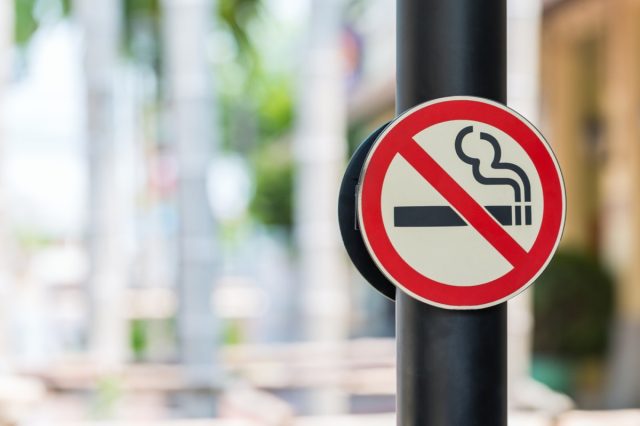According to the CDC, 38% of Americans are living with high cholesterol, which is linked to an increased risk of heart disease and stroke. Cholesterol in itself is not a toxic substance—in fact, it performs many vital processes in the human body. This waxy substance is instrumental for building cells and membranes, vitamins and hormones. So cholesterol is not inherently bad, but if there is too much bad cholesterol vs good cholesterol, it can cause serious health issues.
“So when you get a cholesterol level, you get it at your doctor’s office, you get four numbers, actually it’s four to five numbers, but the important ones are total cholesterol,” explains cardiologist Leslie Cho, MD. “And then you get something called HDL: H for happy, that’s good cholesterol, it goes around your body and it’s like a vacuum cleaner. It sucks out cholesterol from the blood vessels. Now, some people have something called dysfunctional HDL. So you can have very, very high levels of the good cholesterol, the HDL, happy cholesterol, but it goes around your body and does nothing. Now, the bad cholesterol is called LDL, L for lousy. And LDL, the higher level it is, the worse off you are. So when we look at epidemiological studies, when we look at genetic studies, people with very high levels of LDL, they go on to have heart attack and stroke, and there are genetic cholesterol problems.”
High cholesterol can build up with almost no noticeable symptoms, but luckily high cholesterol can be reversed and improved with simple lifestyle changes. “There are absolutely wonderful ways to manage high cholesterol,” says Dr. Cho. “And the wonderful news in 2022 is that heart disease is 90% preventable. And even if you have significant family history, you can prevent heart disease.” Here are five easy ways to improve your blood cholesterol levels, according to experts. Read on—and to ensure your health and the health of others, don’t miss these Sure Signs You’ve Already Had COVID.


Smoking not only decreases HDL cholesterol and increases “bad” LDL cholesterol, but it makes the bad cholesterol stickier, which can lead to clogged arteries. According to the American Heart Association, 30% of all coronary heart disease deaths in the United States each year are directly linked to smoking.
One study showed that for many smokers, a stroke was the first sign they had of cardiovascular disease. “There is often more awareness and concern about cancer as a result of smoking than heart disease, so we wanted to better define the risks of smoking related to different types of cardiovascular disease and, most importantly, to cardiovascular death,” says Sadiya S. Khan, MD, assistant professor of medicine in the division of cardiology at Northwestern University’s Feinberg School of Medicine in Chicago. “In our analysis, even after adjusting for deaths not related to the heart, such as due to lung cancer, we found that fatal or non-fatal events related to cardiovascular disease are more likely to occur among people who smoke. People who smoke may not realize the harm cigarettes are causing their body until it’s too late.”


The food you eat has a strong impact on your blood cholesterol levels. The good news? The food healthiest for your heart happens to be delicious. “Your diet influences your overall risk for several conditions in multiple ways,” says Julia Zumpano, RD, LD. “Why do we even care about cholesterol? Because it’s a risk factor for heart disease. So, what we’re really trying to prevent is the heart disease.”
The Mediterranean diet has been shown to be incredibly good for heart health, with its focus on lean protein, vegetables, and olive oil. “Extra virgin olive oil and avocados should be used as staple fat in a heart-healthy diet to replace saturated fats like butter, margarine and white condiments like mayonnaise, sour cream and cream cheese,” says Zumpano. “When you start to utilize plant-based fats to replace animal fats, that will help lower your cholesterol and improve your overall heart health.”


For those who are overweight, losing fat can help decrease bad cholesterol levels. Even a 10 to 20 pound weight loss can help lower LDL cholesterol. Be mindful of belly fat as well—too much fat around the abdomen is linked with higher levels of LDL cholesterol. A waist circumference of over 40 inches for a man and over 35 inches for a woman is considered dangerous.
“One reason excess visceral fat is so harmful could be its location near the portal vein, which carries blood from the intestinal area to the liver,” says Harvard Health. “Substances released by visceral fat, including free fatty acids, enter the portal vein and travel to the liver, where they can influence the production of blood lipids. Visceral fat is directly linked with higher total cholesterol and LDL (bad) cholesterol, lower HDL (good) cholesterol, and insulin resistance.”


According to the Cleveland Clinic, regular exercise lowers LDL cholesterol by raising HDL (good) cholesterol. So how much exercise is ideal? The American Heart Association recommends 30 mins of movement five to seven times a week. Even just enjoying a brisk walk can be beneficial for heart health. Yoga, swimming, and cycling are also great options. “The great thing about exercise is that it doesn’t always have to be the same,” says Dr. Cho.
For those who are only just embarking on their workout regimen, make sure to speak to a health professional to rule out any issues. “Always check with your doctor before starting an exercise program, especially if your high cholesterol is putting you at more immediate risk for heart disease or stroke,” says Dr. Cho, who recommends starting slow and building up to more intense exercises.


Heavy drinking is linked to an increase in LDL cholesterol, experts warn. While previous studies have shown a link between red wine and lower cholesterol, the benefits may have more to do with overall lifestyle than the red wine itself. “Any statement on the benefits of drinking alcohol has a lot of ‘ifs’ next to it,” says Dr. Cho. “You certainly shouldn’t take up alcohol to lower your cholesterol risk.”
So how does alcohol impact cholesterol levels? Alcohol is processed by the liver and turned into cholesterol and triglycerides, a type of lipid stored in your fat cells. Any excess calories the body doesn’t use immediately are turned into triglycerides and put away to use as energy when needed. “People who drink a lot of alcohol tend to have very high triglycerides,” says Dr. Cho. “That can be a concern because elevated triglyceride levels can increase your risk for diabetes, pancreatitis and stroke.”
Source:
READ RELATED: 2.6MILLION US teens admit to being hooked on 'dangerous' vape devices, CDC report finds










